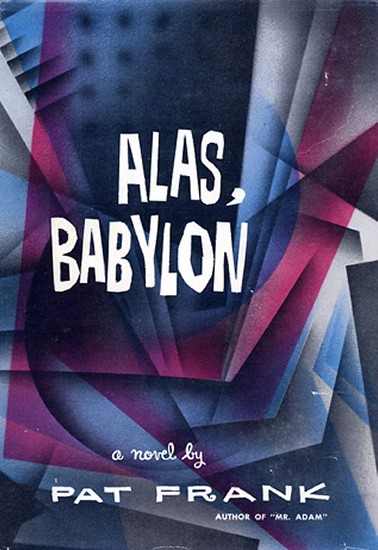"Beyond our Experience"

by Amber Dubin
Only the best of science fiction challenges us to question the laws of physics and our reality. In this, "The Immunity Syndrome" does not disappoint. This episode takes a similar phenomenon as was seen in "The Doomsday Machine" and "Obsession" where a mind-numbingly dangerous sentient entity is found cutting a swath of destruction through space and the Enterprise is sent to find a way to stop it. This time, however, the nature of this space organism is so far beyond our experience that it has stunning implications for both the nature of humanity and for life itself.

We open on an already exhausted crew heading toward a well deserved break before they are yanked off course by a Priority 1 distress signal. As they are being informed that Starfleet has lost contact with an entire solar system and the Vulcan-crewed star ship that was sent to investigate, Spock nearly collapses onto his console. Teeth gritted in agony, he exclaims that the Intrepid and every member of its 400-strong Vulcan crew is dead.

We soon find out that Spock was right, that both the Intrepid and an entire solar system has been wiped out under mysterious circumstances. In sickbay, McCoy inquires as to how Spock could possibly have known the moment it happened and he replies with what is probably my favorite line in the entire show: "I've noticed that about your people, Doctor, you find it easier to understand the death of one than the death of a million. You speak about the objective hardness of the Vulcan heart, yet how little room there seems to be in yours."
A now more somber and grief-rattled Spock returns to the bridge and the crew resumes investigating the source of this massacre. They soon stumble on a starless patch of space that appears to be a hole in the viewscreen. Being unable to gain any knowledge from a probe launched towards it, Captain Kirk decides to take the ship closer to get a better look. With a sudden piercing noise, the ship finds itself fully enveloped in this absence of stars. Immediately half the crew collapses, their life forces suddenly drained. Scottie informs the bridge that the deflectors and power cells have suffered a similar fate. Eventually it is surmised that the Enterprise has been ensnared in a spider's web of some kind, a negative zone of energy created as a consequence (deliberate or otherwise) of a massive creature's movement through space. This creature is apparently structured like a single celled organism that consumes energy in order to reproduce and expand its influence across the universe, like a bacterial cell would as it infected a host body.

After a lot of scrambling and trial and error, the Captain and crew discover that the only way to find this creature's weakness is by sending a shuttle inside of it. This leaves Captain Kirk in the unenviable position of having to choose which of his two best friends, Spock or McCoy, will pilot the shuttle and likely never return. With a heavy heart, he chooses Spock, and even McCoy has a hard time making light of the situation the way he usually does, reluctantly watching as Spock makes his funeral march to the shuttlecraft.

Spock and McCoy: a no-win decision.
Of course the crew narrowly eke out a win, the organism is killed, and the trio is reunited in the end; yet it is the questions that arise from the existence of this creature that linger on past its demise: "Where did it come from?" "Is this the beginning of an invasion?" "Is the universe itself an ecosystem with perceivable edges?" "Did this creature come from beyond those edges?" "Is the universe itself alive when viewed with a large enough lens?"
On a smaller scale, we are given another compelling morsel of mind-taffy in the new knowledge that Vulcans feel the dying minds of their own kind. A fascinating implication is that a genocide would be impossible on Vulcan because Vulcans literally feel pain when large amounts of their kind are slaughtered. McCoy echoes the sentiment of many audience members that humans do not envy this ability: "Suffer the death of thy neighbor, eh Spock? You wouldn't wish that on us would you?"
Spock sagely replies, "It might have rendered your history a bit less bloody."
Yet here I must disagree with Spock. Spock claims this Vulcan ability to avoid massacres gives them a survivalist edge over humans, yet it is this lack of experience with societal trauma that left them vulnerable in this case. They could not conceive that the annihilation of the Intrepid was even possible, and thus they literally died in disbelief.
This episode has the cleanest script I've seen in the series so far, and it gave my brain something to chew on with a rather satisfying crunch…5 stars

by Tam Phan (Secret Asian Man)
A Stoic’s Guide to Vulcanianism
“Damn your infernal Vulcan logic!” A sentiment expressed all too often by Dr. McCoy, but is it truly the logic that is so infuriating to the prickly old doctor? Spock’s virtual lack of emotion seems to be characterized as having stemmed from his dedication to logic, but we see logical decisions made by the captain even in his most emotional states. Even his hunches, acted on with no strong emotional component, are based on an assessment of the situation. He may not have a clear explanation at the ready, but those decisions are not made on a whim.
At the same time, we have seen Spock display genuine emotion. For example, in “Amok Time” when he exclaims, “Jim!” upon discovering that he is alive, and again at the very beginning of “The Immunity Syndrome”, whether it is grief, despair, or agony, when he is clearly suffering from the sudden death of 400 Vulcans. He would probably explain the phenomenon as pain, but I do not buy it.
Having been sent to sick bay, Spock is questioned by McCoy as to how he knew the Vulcans had died. As far as he knows, in order for Spock to know what someone or something is thinking, he had to have contact. Instead of answering the question in his usual way, Spock lashes back with what sounds like anger. As a result, it may be the most unclear he has ever been. When McCoy questions him further, he resorts to insults.
There are other occasions in the episode where Spock lets his feelings out, but this is not to nitpick about whether he has or displays them. The idea that emotion equals irrationality and a lack of emotion equals rationality is a dichotomy that has major issues even aside from the fact that it is not a true dichotomy. We know that Spock has emotions. Whether they come from his human side is not really important, but the idea that lacking emotion is somehow more logical is flawed. He is no more or less logical than anyone else on the ship. Rather, he has a clear understanding of what and why, and he carries out his duties with little excitement and characteristic coolness he calls "logic".

Lack of emotion does not equal logic. Emotion does not mean lack of logic.
It would be unfair to expect anyone to recognize this philosophy of virtue and ethics, but what the show presents is not a lack of emotion, or "logic", but Stoicism. Spock’s resistance to desires and fears and living with the virtues of wisdom, temperance, justice, and courage are classic tenets of Stoicism.
Taking a look at his demeanor, we start to see how Stoicism plays a significant role in the way he approaches the world. Being the chief science officer on the Enterprise, Spock is a truth seeker. He is an observer that accepts what is presented to him in his exploration of the universe. There is no expectation of what the universe should or should not be. He has faced the fear of death on numerous occasions stepping in to save his friends and colleagues. Kirk relentlessly demands to be given answers. Spock responds with the only correct answer in that situation (“insufficient data”) rather than speculation. Spock carries out his duties on the shuttle craft despite a likely fascination and a desire to study this new discovery. We can imagine McCoy acting in self-interest, but it never even crosses Spock’s mind. He has no judgments about the organism that killed the 400 Vulcans. It would be understandable if he had a sudden desire to seek revenge, but instead, he continues to carry out his duties on the ship.
McCoy’s frustrations with Spock are blamed on his logic, but so often it is merely his discipline and self-control that irritates the good doctor. What McCoy understands is that Spock keeps his feelings inside. It is not that he does not have them. He just infrequently acts on them. They both care for each other, but Spock would rather sacrifice himself for the ship. Thankfully McCoy is not having any of it. So “shut up Spock! We’re rescuing you!”
Five Stars
Amoebic Anatomy 101

by Joe Reid
This week on Star Trek we got a bit of an elementary school biology review, as the creature of the week was a humongous protozoa. What type of protozoa you ask? Well, there are actually 20 types of protozoa and this was a giant space monster on a weekly sci-fi show. Although, if I were to guess based on my general knowledge of actual science, this creature best resembled the amoebic variety of protozoa. I think they even called it an amoeba at some point in the episode. Let’s talk about how this giant twelve-thousand-mile-long amoeba compares to the amoeba that we learned about when we were children.

A real amoeba, at least, so Trek tells us.
In the interest of keeping this a reasonable comparison and not sounding ridiculous, we are going to completely ignore the following elements. The size difference. The ability to make pockets in space without starlight. The powerful attractive force that draws starships to their doom, and vacuum of outer space, which no protozoa known to modern science could survive.
The amoebas that we might find in our local pond water are single-celled living organisms that have the following structures: a nucleus, containing 13 chromosomes; an outer membrane, to hold in the gelatinous cytoplasm. In the cytoplasm there are various organelles. Along with the nucleus, you have a contractile vacuole, which helps in motion and fluid exchange, along with multiple food vacuoles to digest food. Mitochondria and other organelles also exist inside of amoeba.
The giant nemesis in “The Immunity Syndrome” had a nucleus, but this one had forty chromosomes. That’s six fewer than what humans have and a fair bit more than our microscopic analog. There was a cell membrane, but the Spock and Bones called the substance inside protoplasm. This is technically not completely wrong. Protoplasm refers to all living matter of a cell–including the cell membrane, cytoplasm, nucleus, and the organelles. All that said, the crew called the substance protoplasm when they should have called it cytoplasm. As, respectively, a doctor and a scientist, I expected better from Spock and McCoy.
Also, an amoeba that you look at under a microscope has a method of locomotion that involves creating pseudopodia by extending portions of its membrane to move itself about. Our space monster didn’t demonstrate this type of motion and it wasn’t mentioned in the episode, so I cannot count that against the accuracy of details. Outside of the nucleus, membrane, chromosomes and “protoplasm”, no other parts of the amoeba in the episode are called out by name. Did they exist? Perhaps. The crew was focused on finding the most efficient way of killing the dangerous monster before it caused any more harm and before it reproduced. Which in tiny amoeba can be done in two ways. A process called cellular fission, where the nucleus splits in two before the amoeba breaks off the rest of its parts and the membrane pinches off creating two daughter cells. Also, sporulation… but I digress.
Outside of the cytoplasm/protoplasm substitution, the number of chromosomes, and the space monster powers, the writers of this episode gave a passable representation of the anatomy of an amoeba. Is it enough to pass your Biology 101 quiz in school the next day? Heavens no! You need to hit those books, kiddo! This was good enough to not pull you out to the moment when watching what overall was a good episode of Trek with great acting, a decent plot, and dramatic tension. I liked it! I can even forgive the crew’s strange decision to fly right into a dark blob in space that had already killed another ship.
Four stars
The next episode of Trek is TONIGHT! You won't want to miss it:
Here's the invitation!

![[Feb. 2, 1968] All creatures great and small (<i>Star Trek</i>: "The Immunity Syndrome")](https://galacticjourney.org/wp-content/uploads/2023/01/680202title-672x372.jpg)


![[January 4, 1968] How much for that fuzzy in the window? (<i>Star Trek</i>: The Trouble with Tribbles")](https://galacticjourney.org/wp-content/uploads/2023/01/680104title-672x372.jpg)









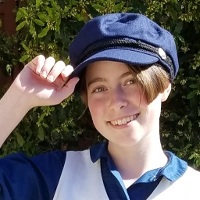


![[December 28, 1967] Stumbling Bloch (<i>Star Trek</i>: "Wolf in the Fold")](https://galacticjourney.org/wp-content/uploads/2022/12/671228title-672x372.jpg)

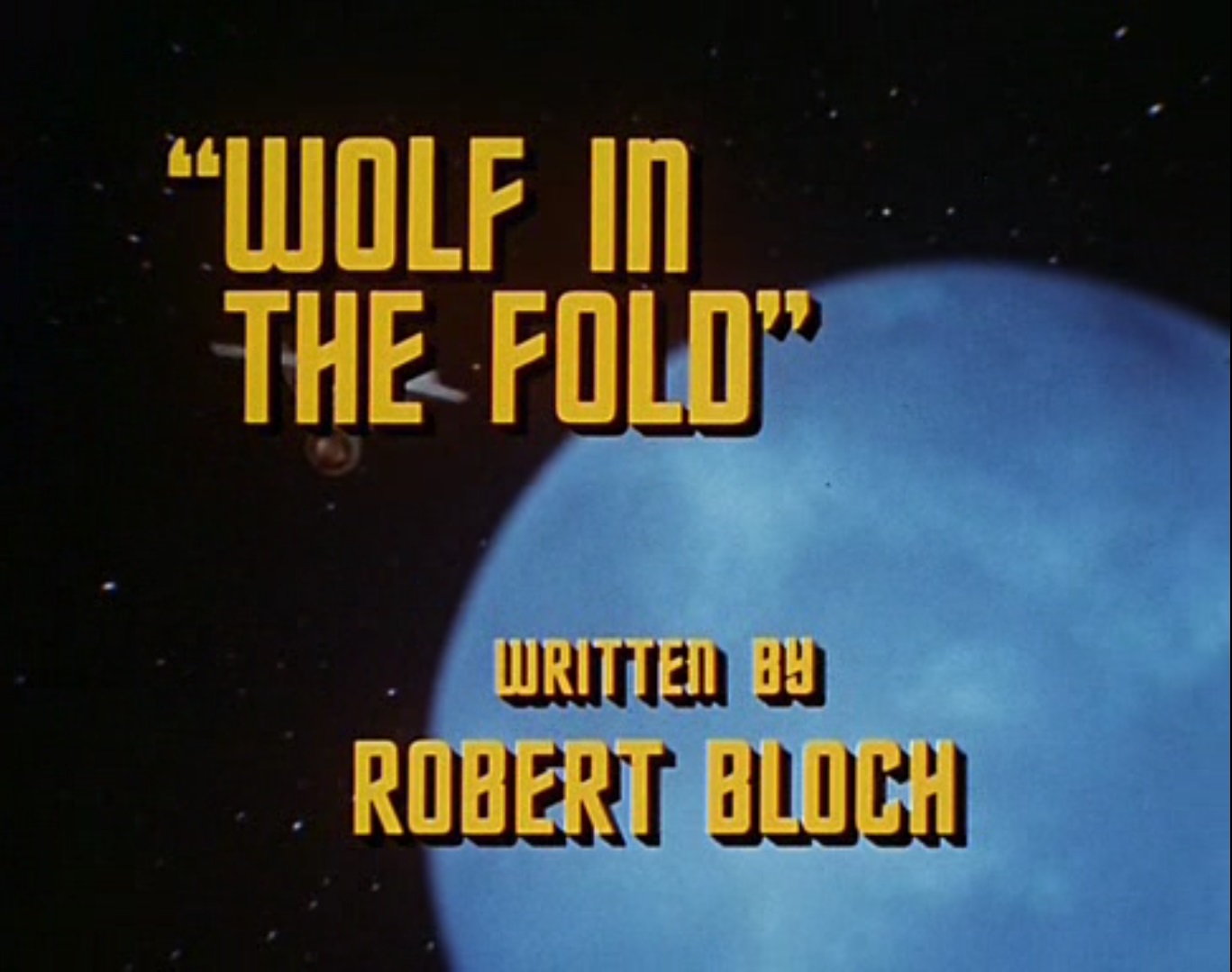
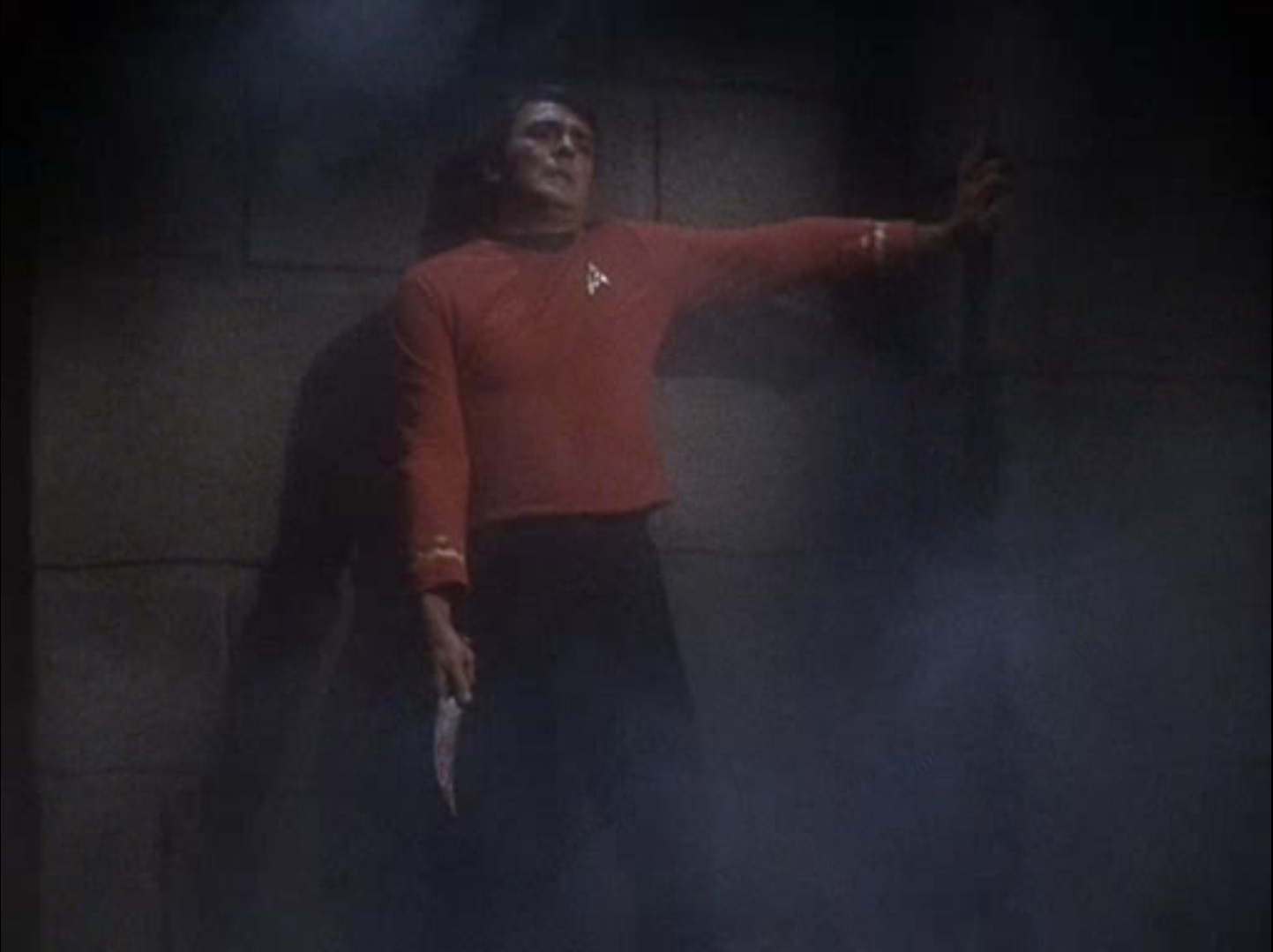
![[December 14, 1967] What a Drag it is Getting Old (<i>Star Trek</i>: "The Deadly Years")](https://galacticjourney.org/wp-content/uploads/2022/12/671214title-672x372.jpg)

![[November 2, 1967] Trouble and Toil (<i>Star Trek</i>: Catspaw)](https://galacticjourney.org/wp-content/uploads/2022/10/671102title-672x372.jpg)
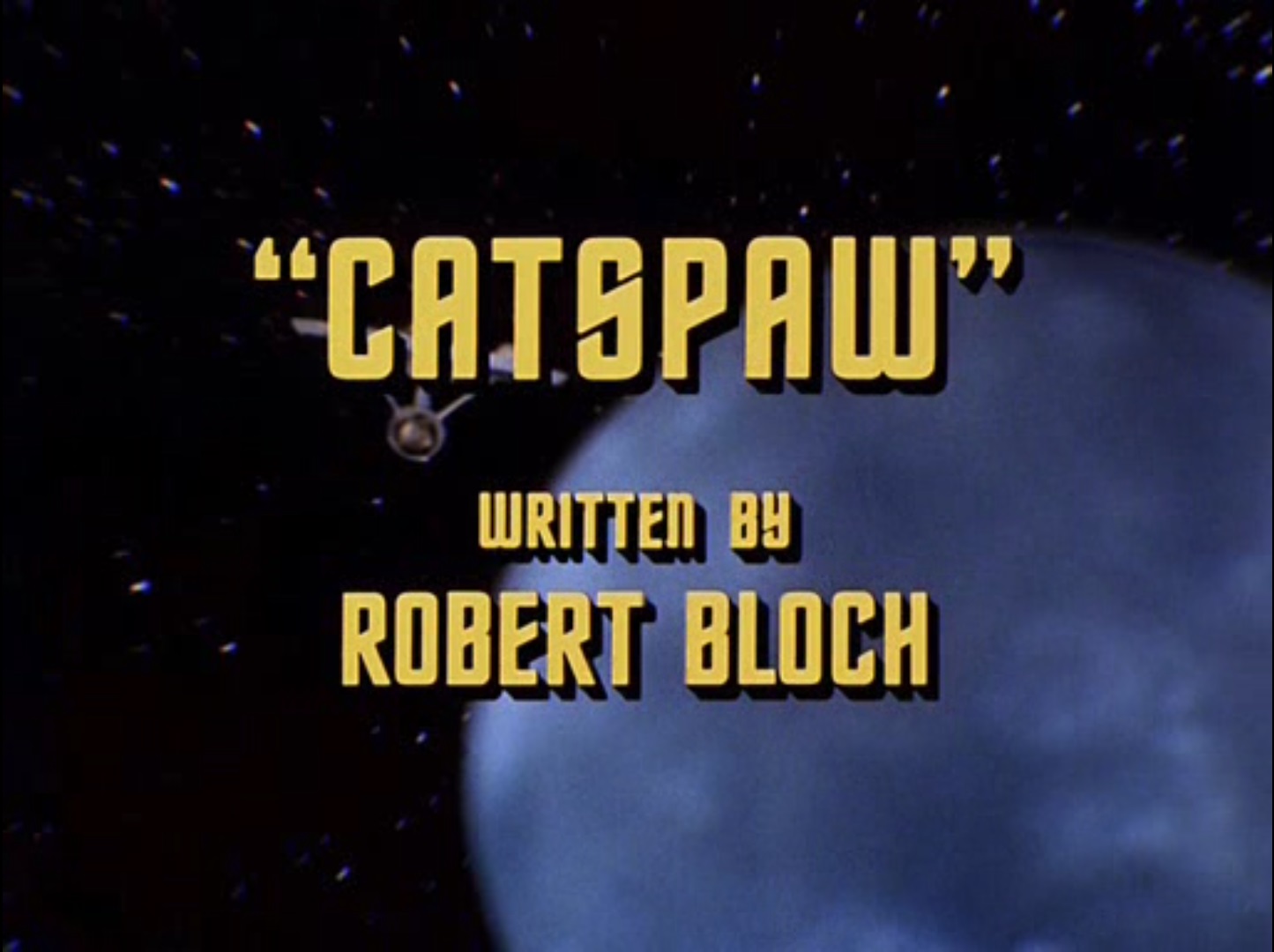
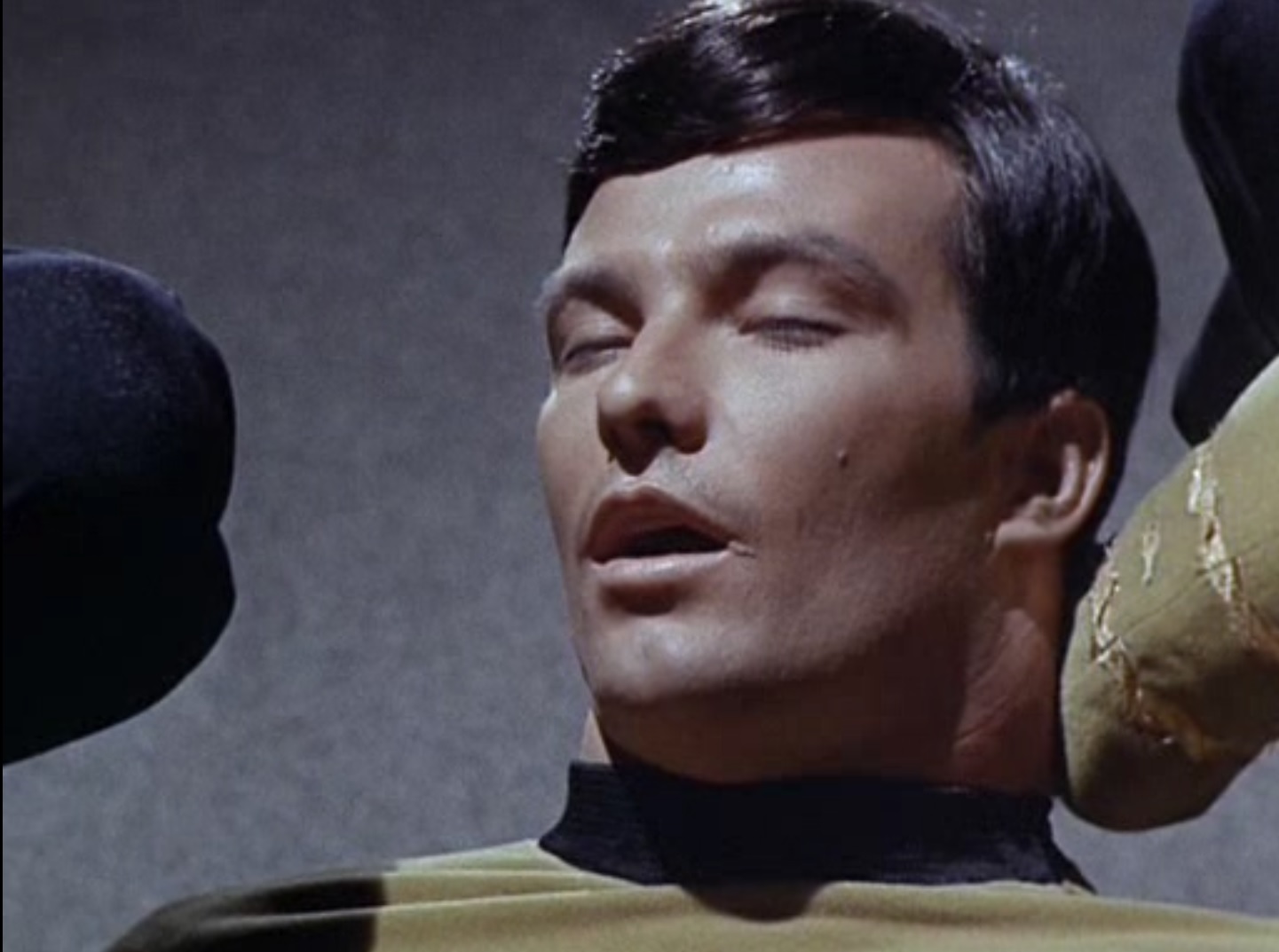
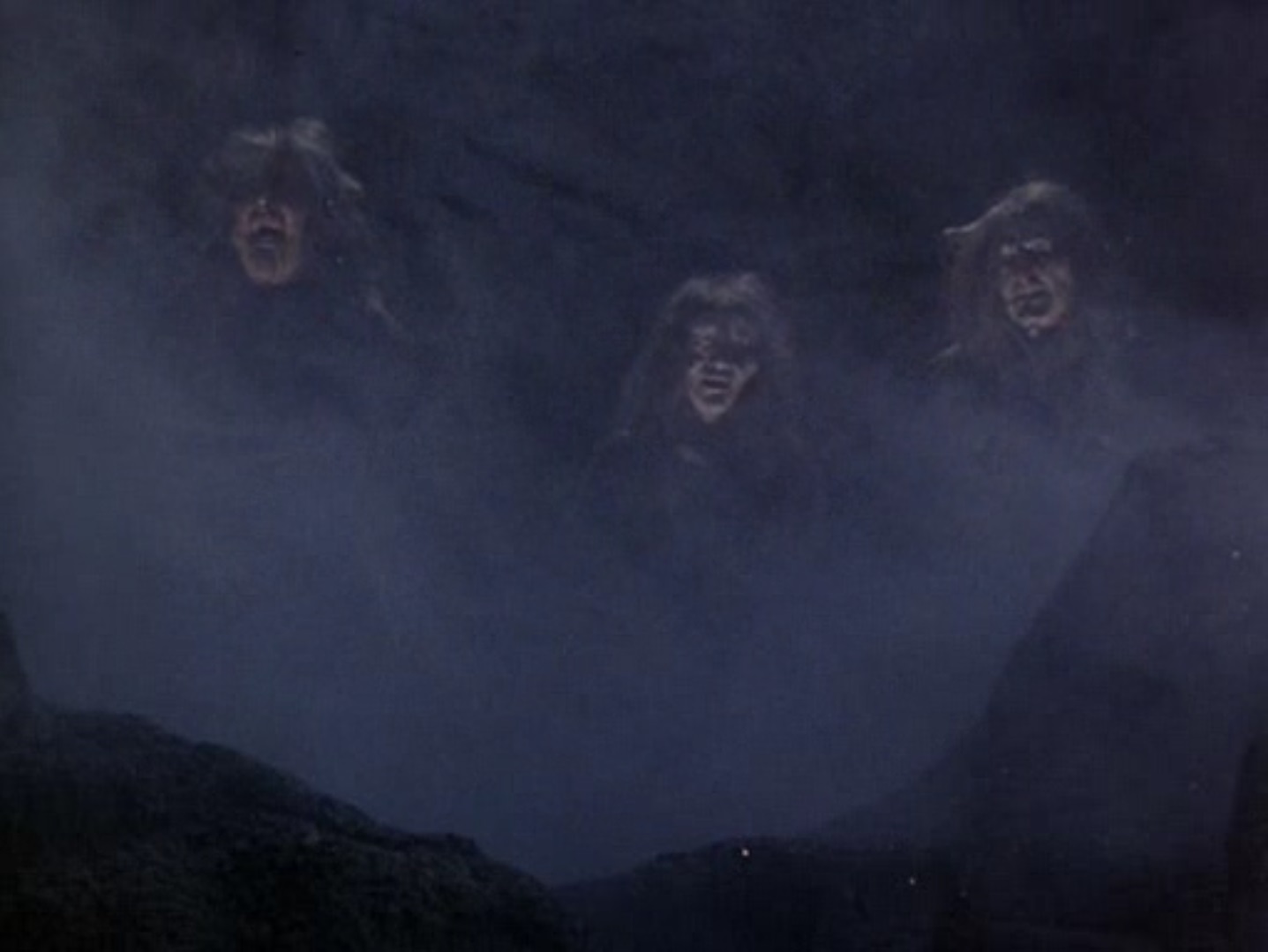
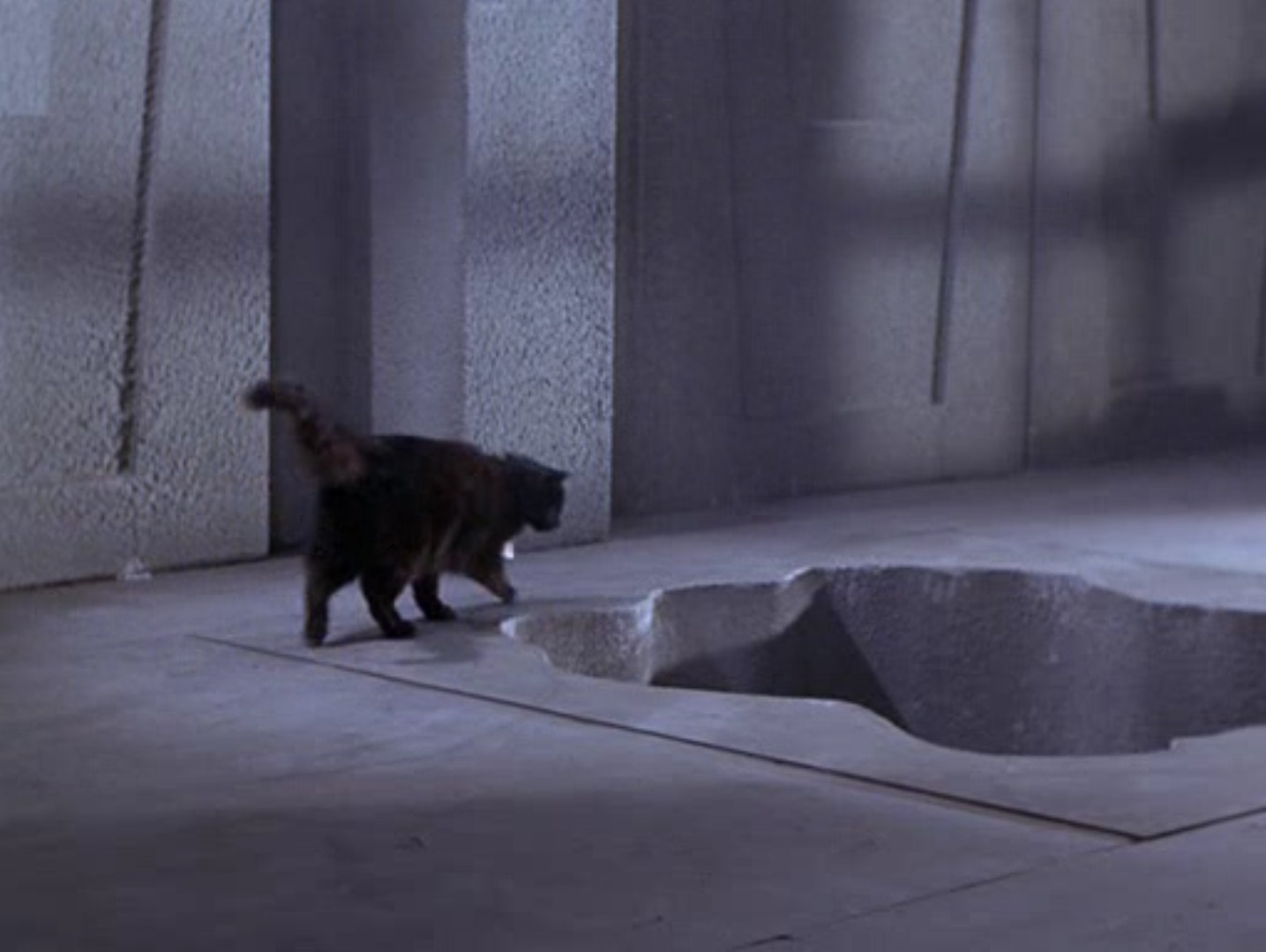
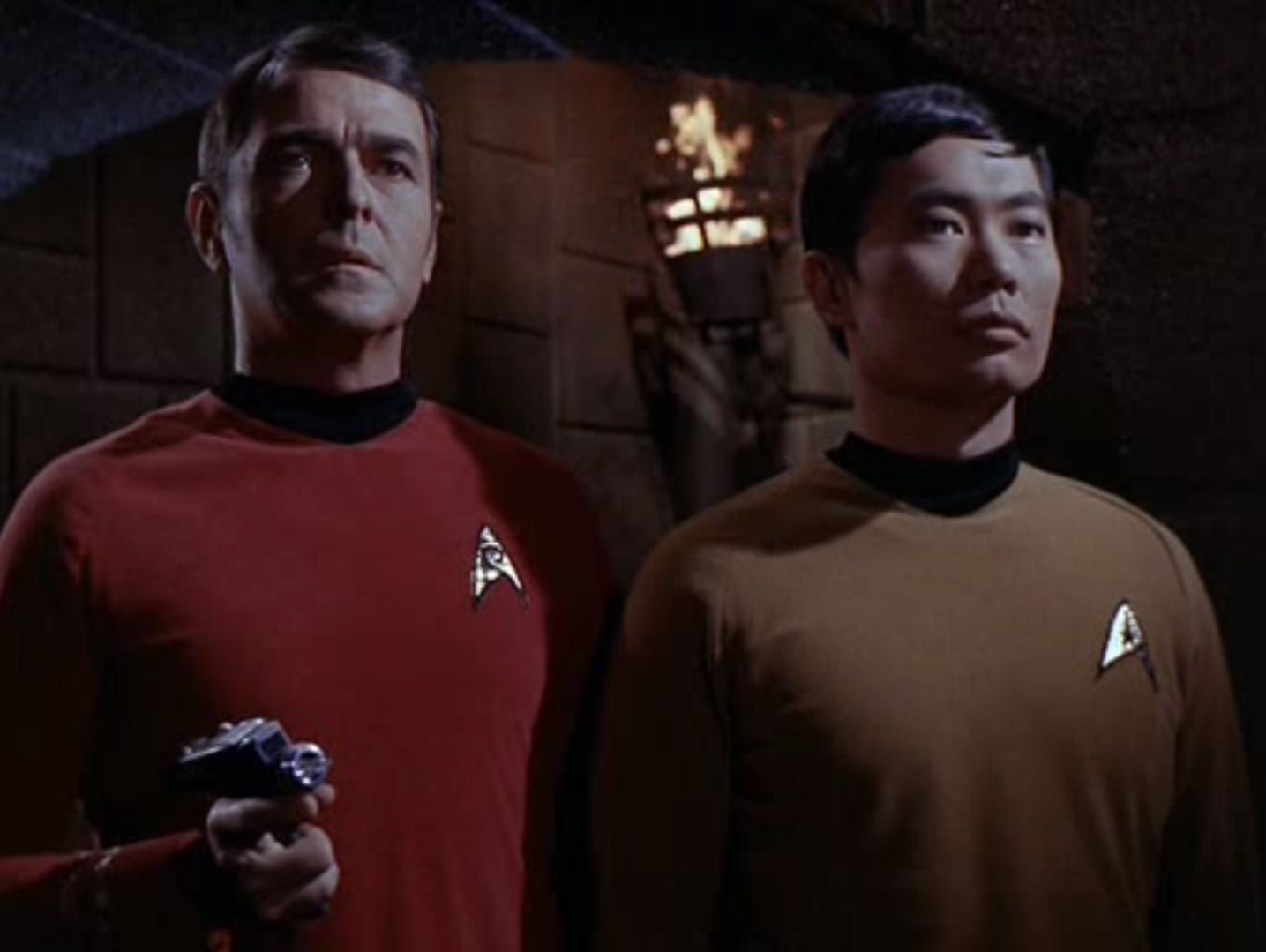
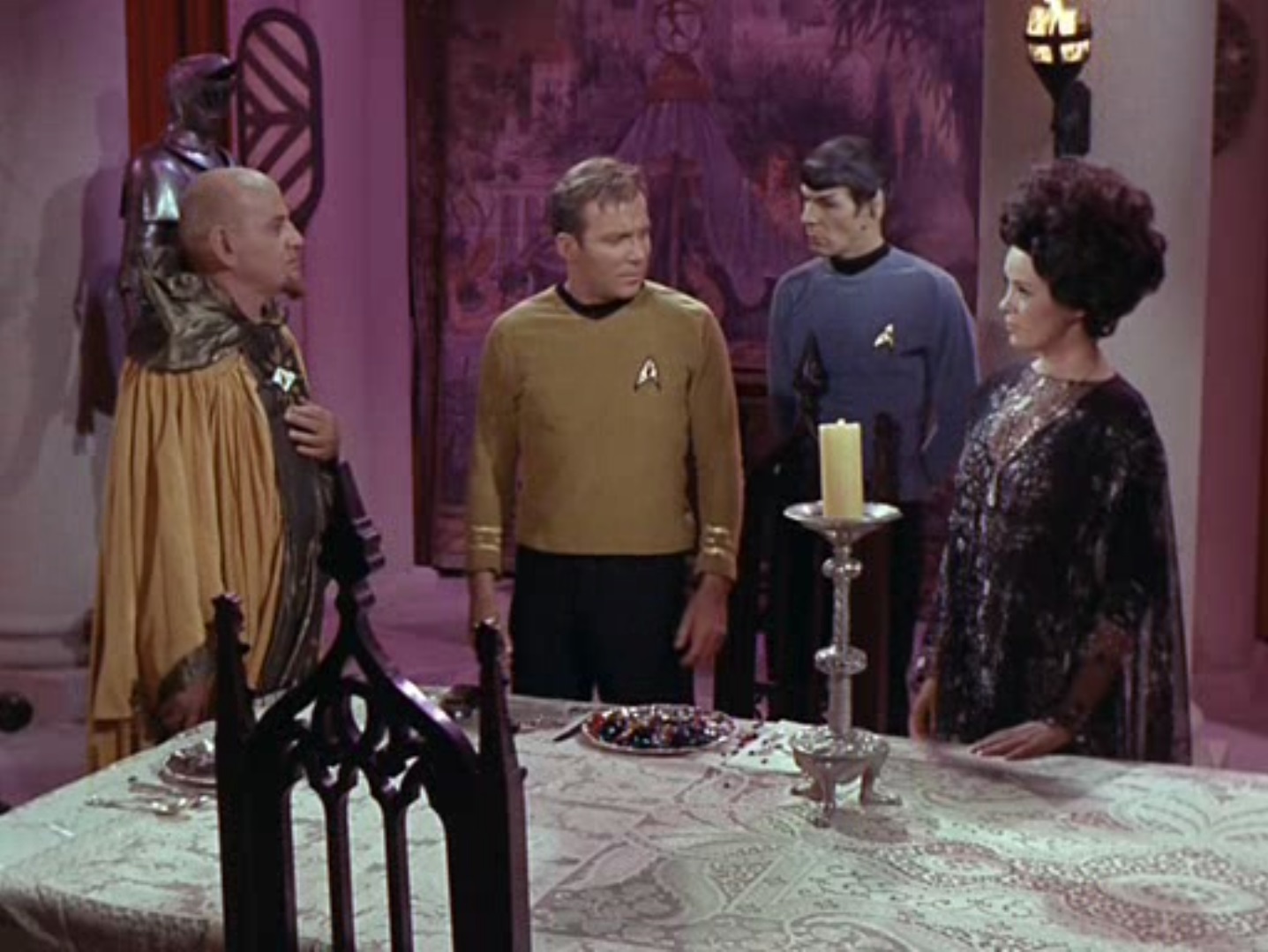
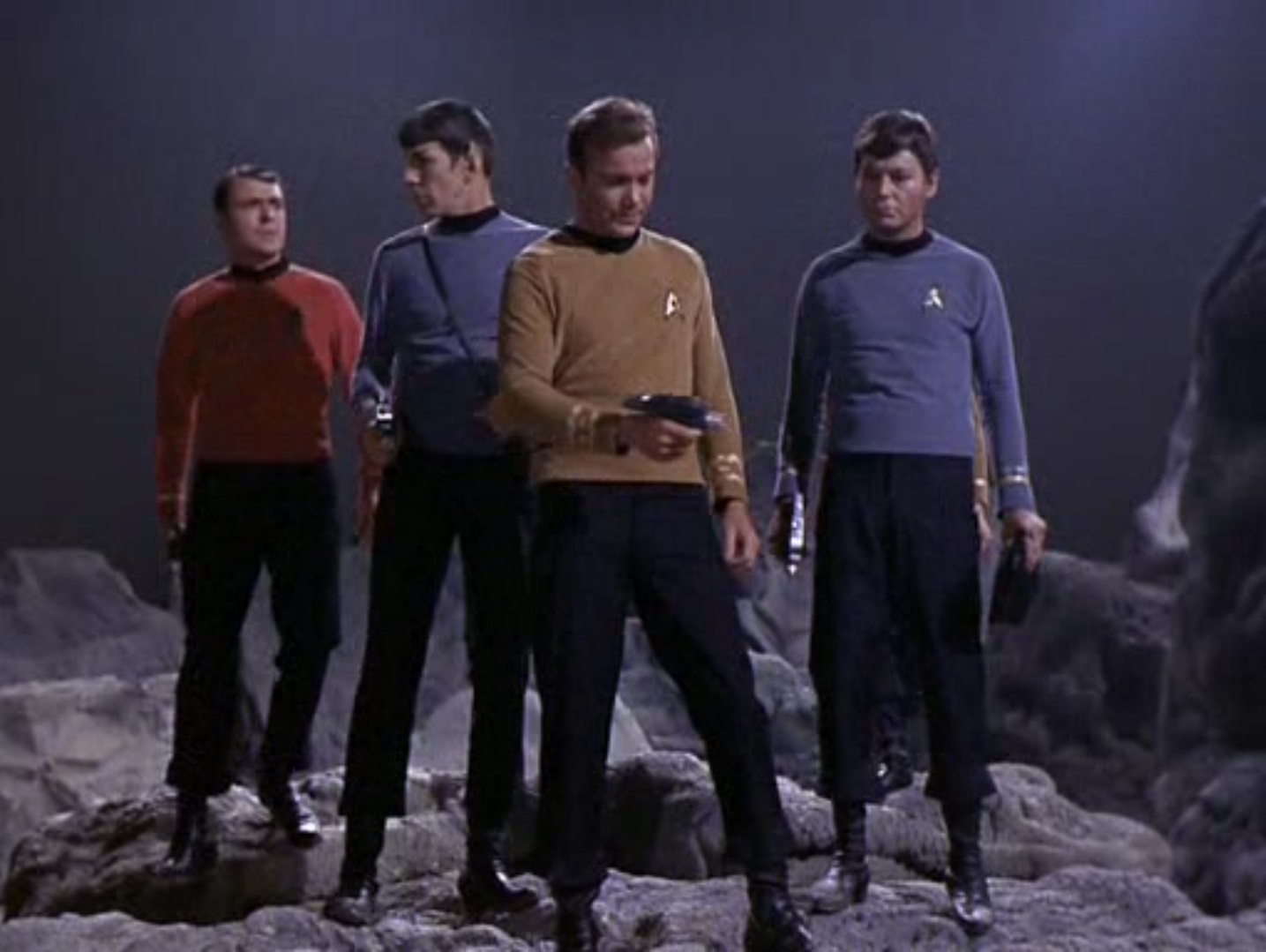

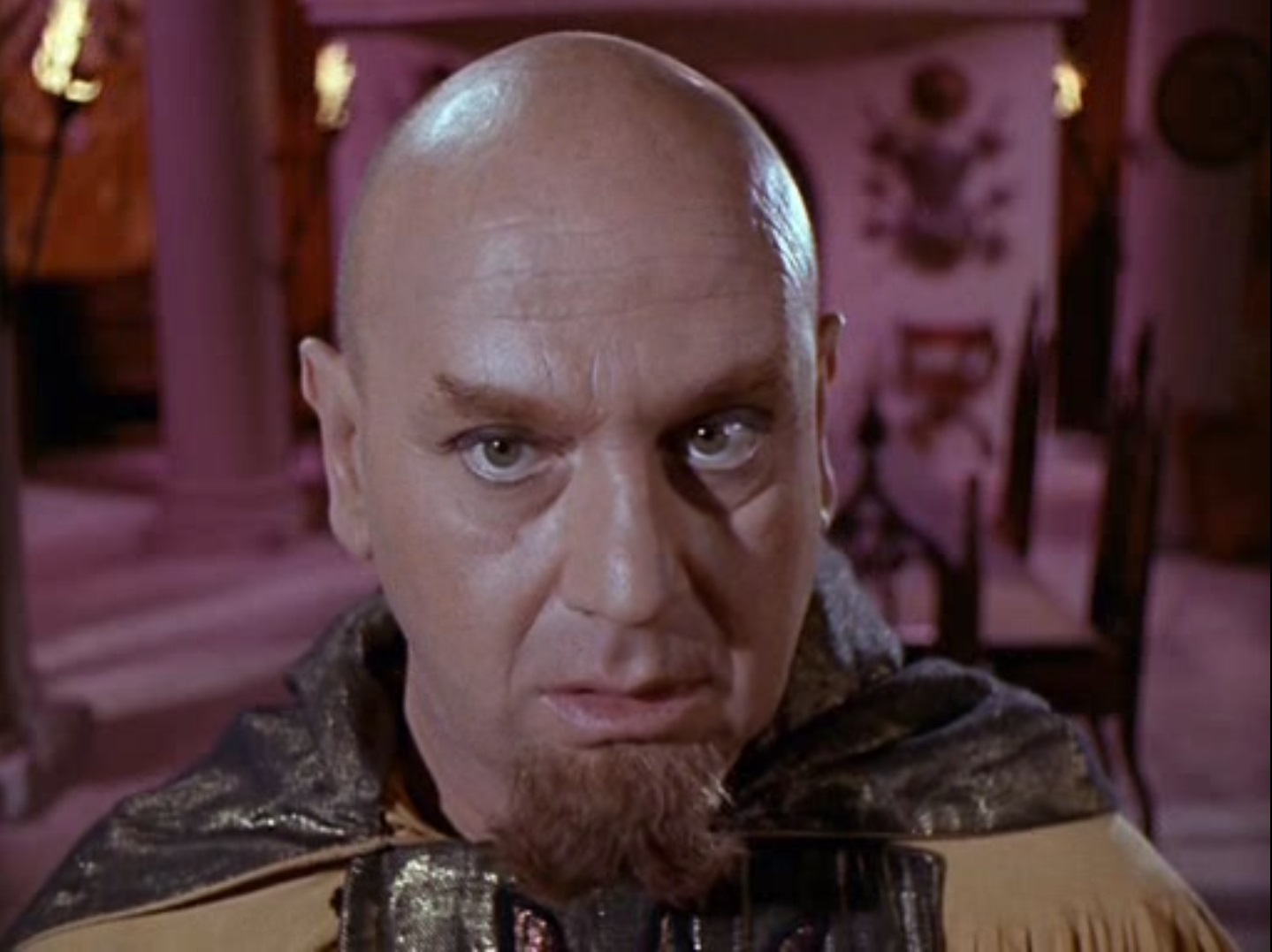
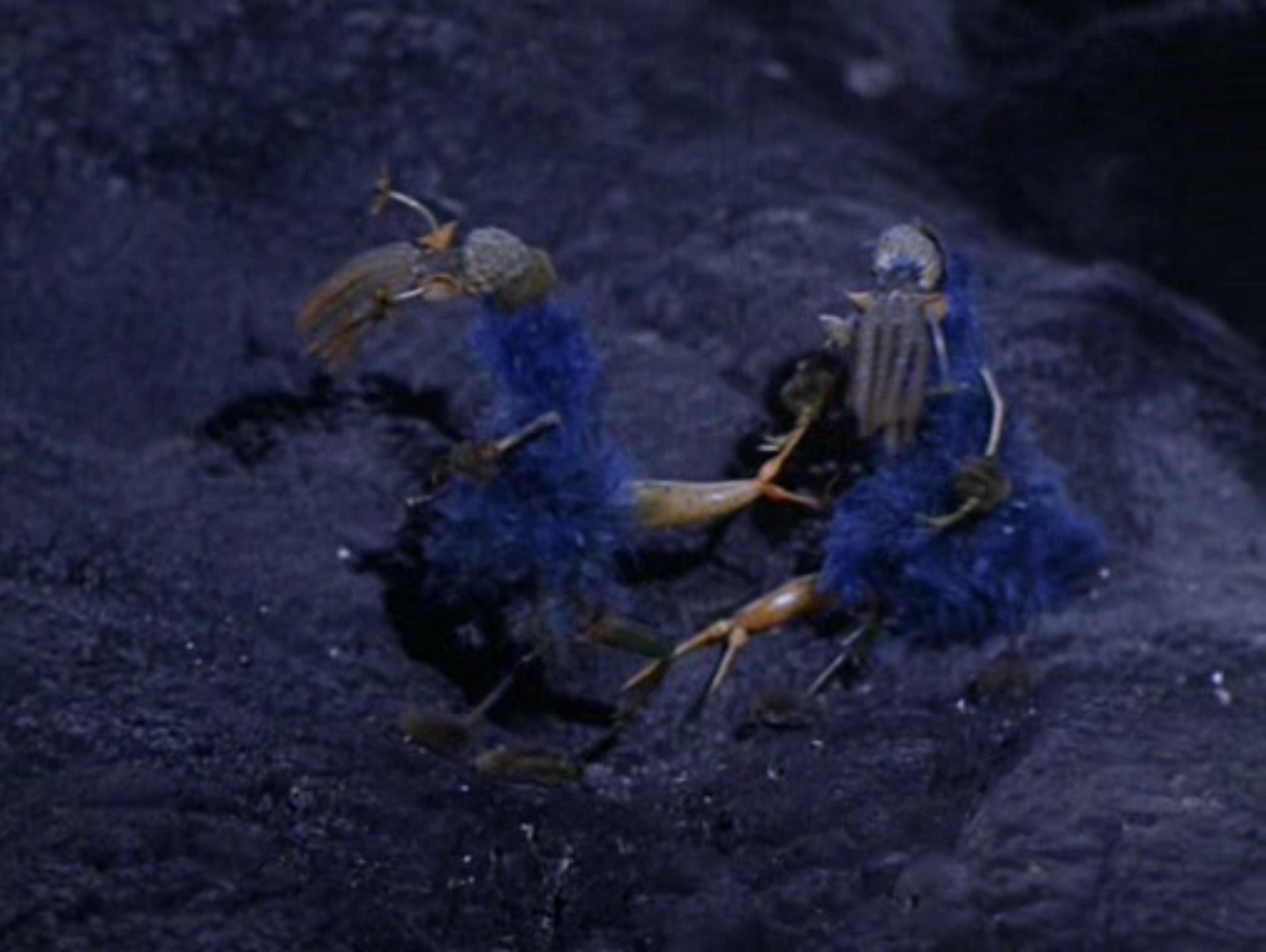

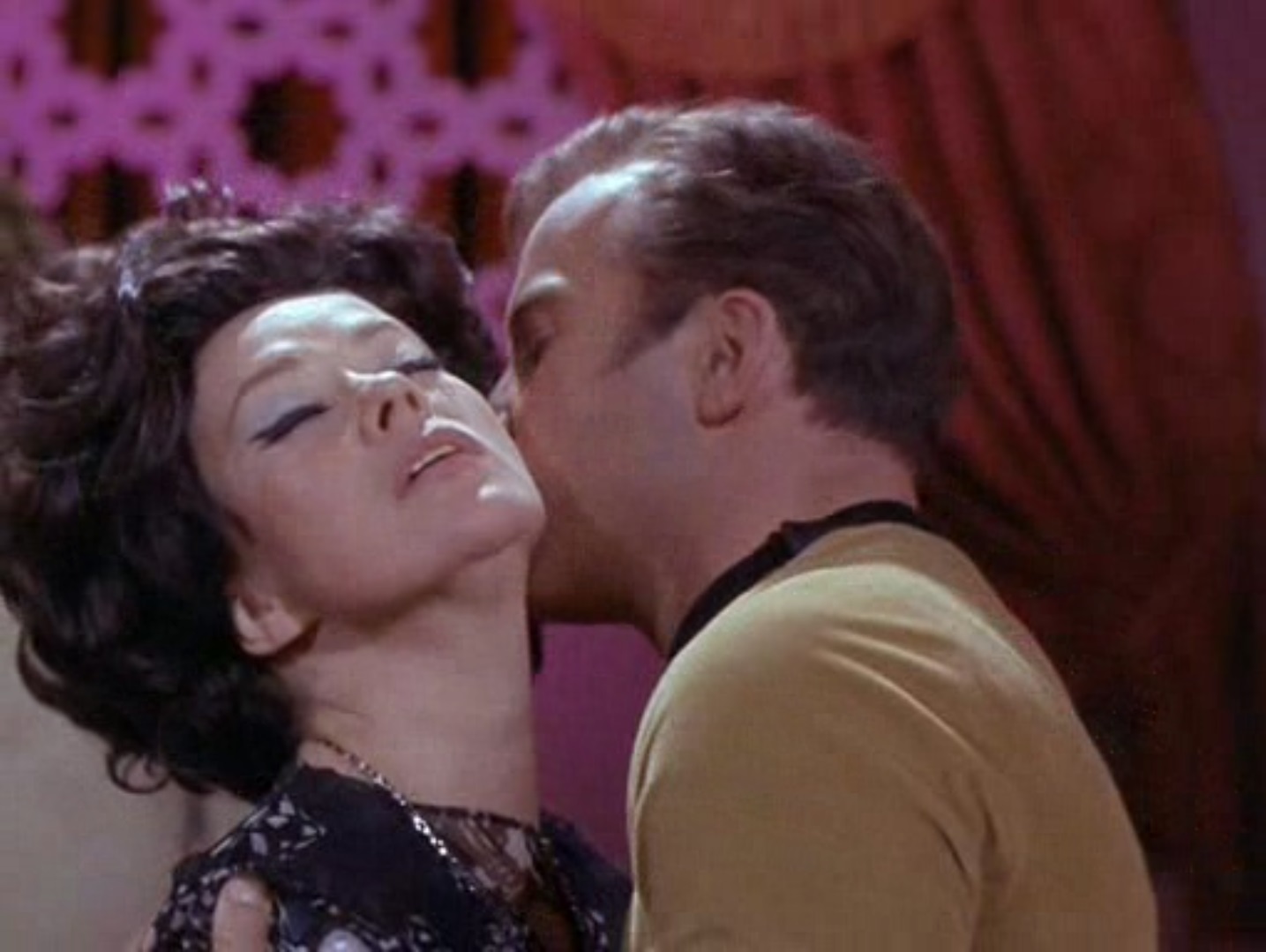

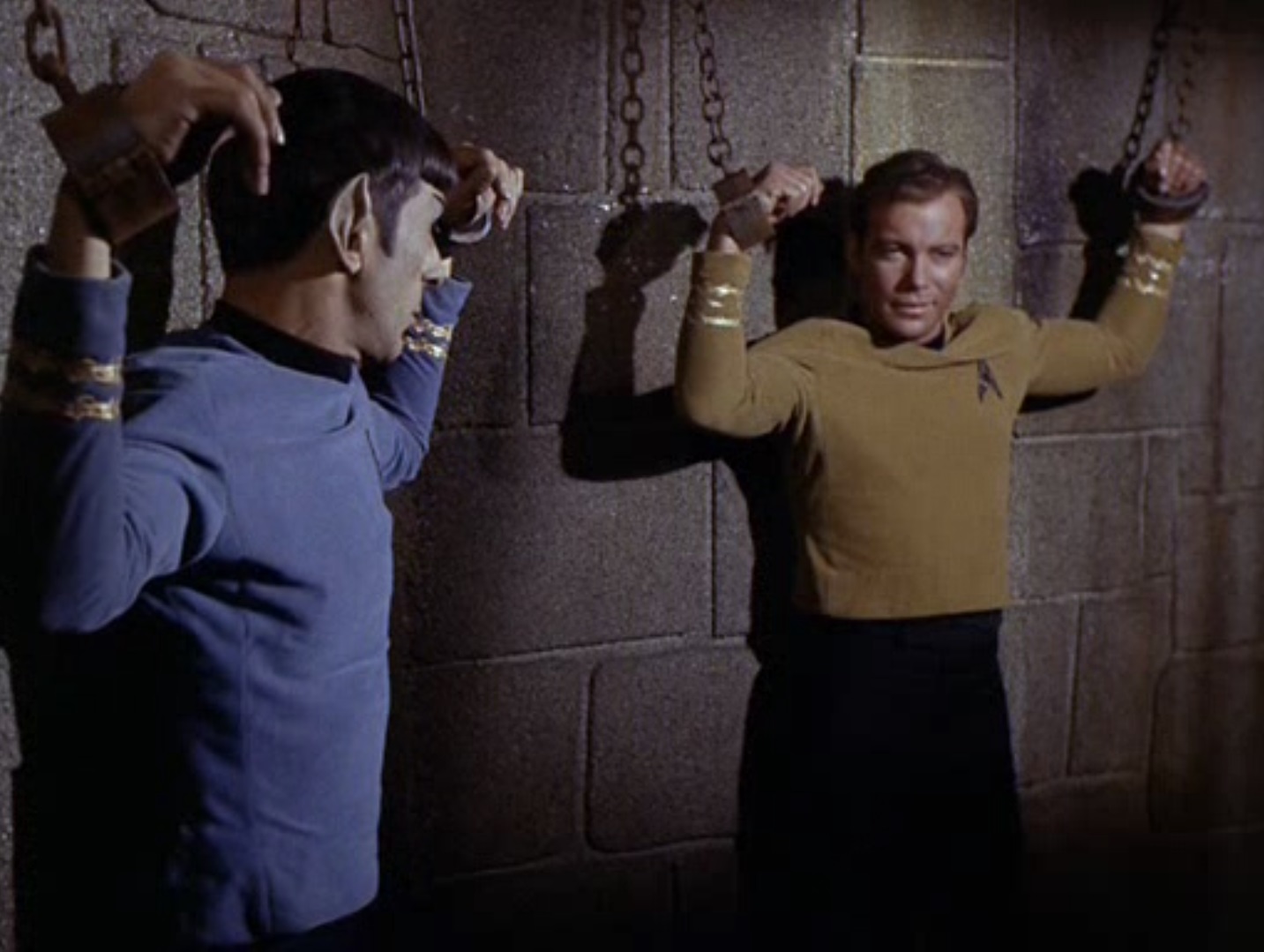
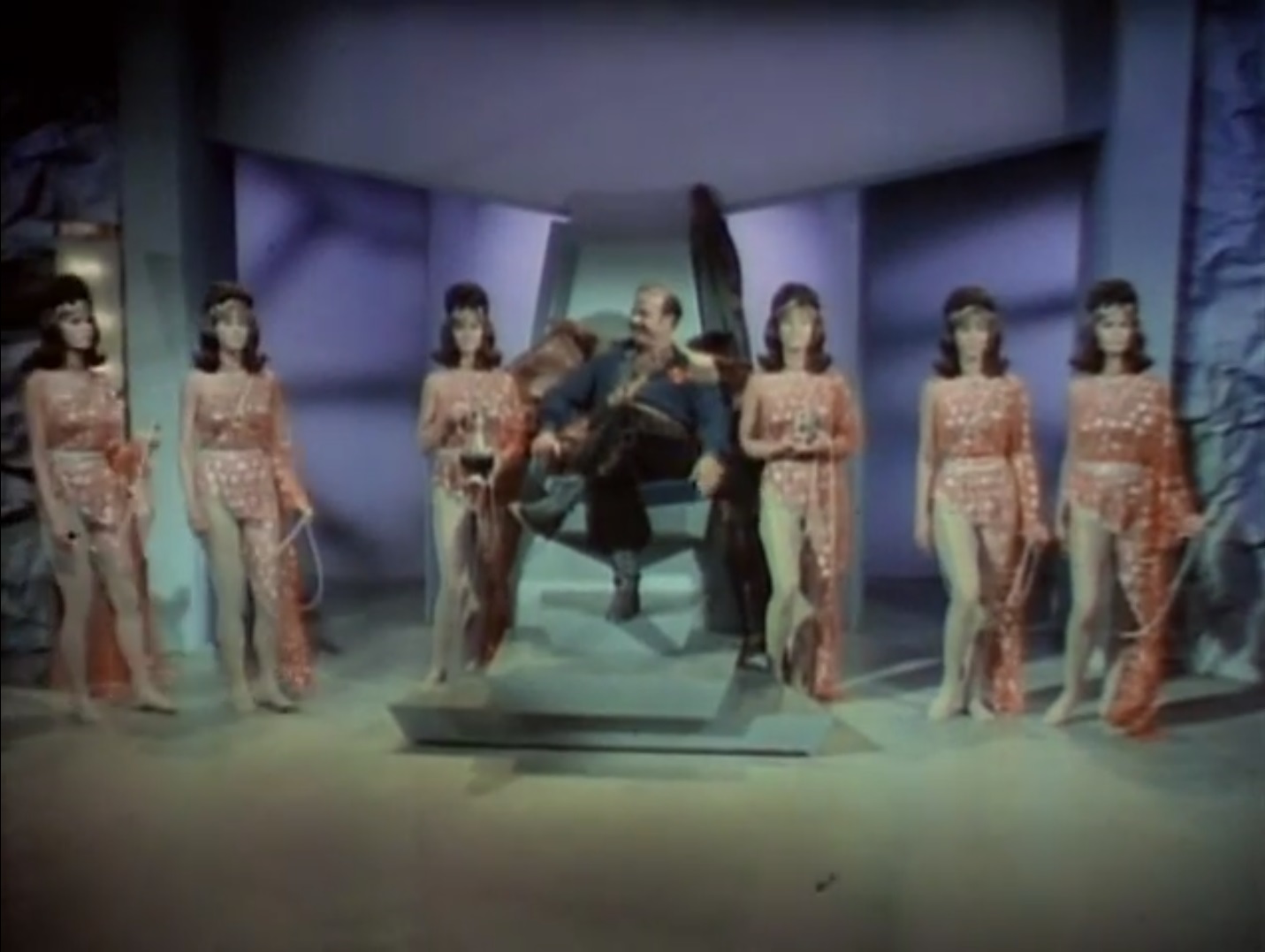
![[October 20, 1967] Spoils the Bunch (<i>Star Trek</i>: "The Apple")](https://galacticjourney.org/wp-content/uploads/2022/10/671020title-672x372.jpg)










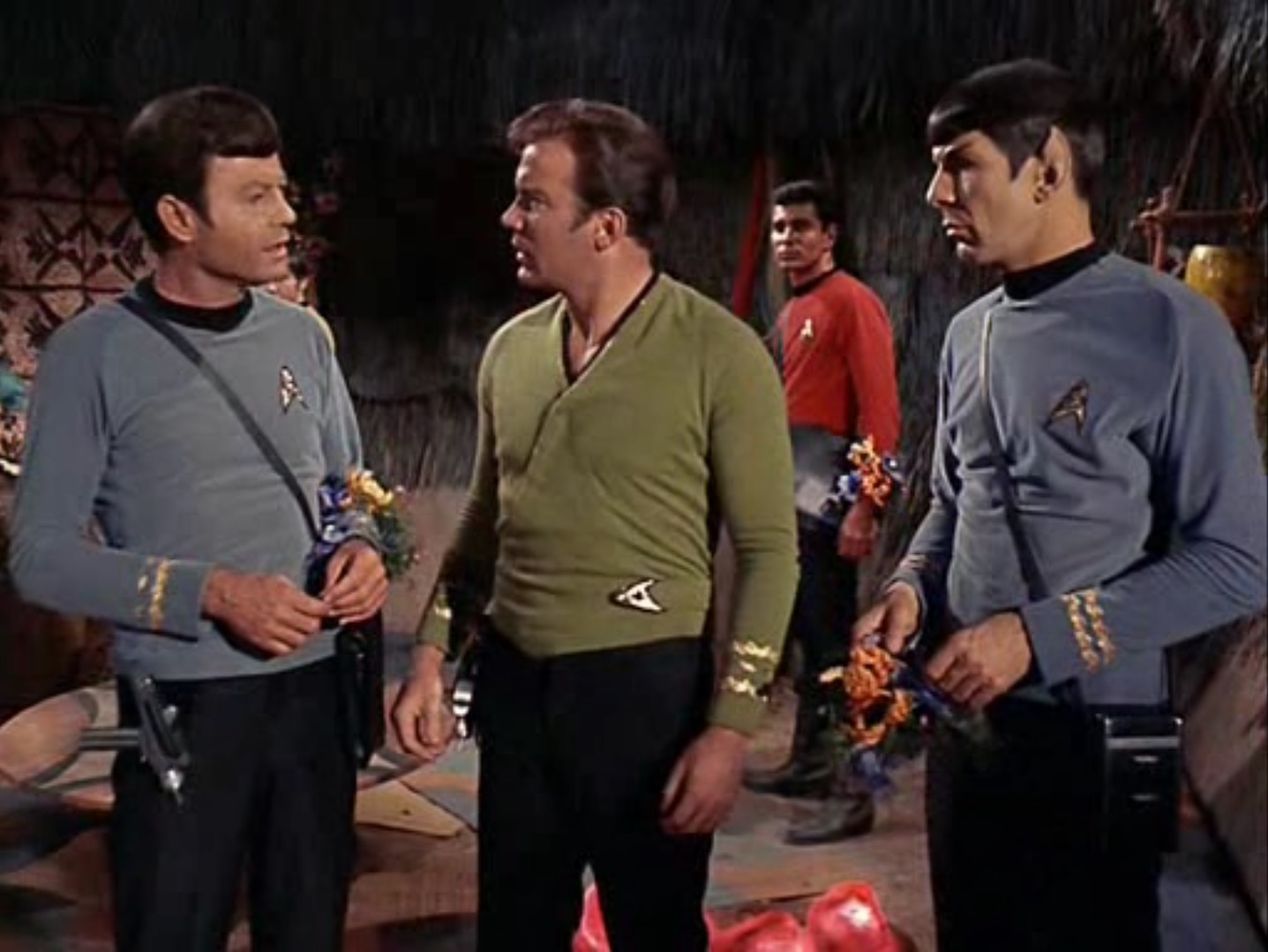

![[September 22, 1967] (<i>Star Trek</i>: "Amok Time")](https://galacticjourney.org/wp-content/uploads/2022/09/670922title-672x372.jpg)
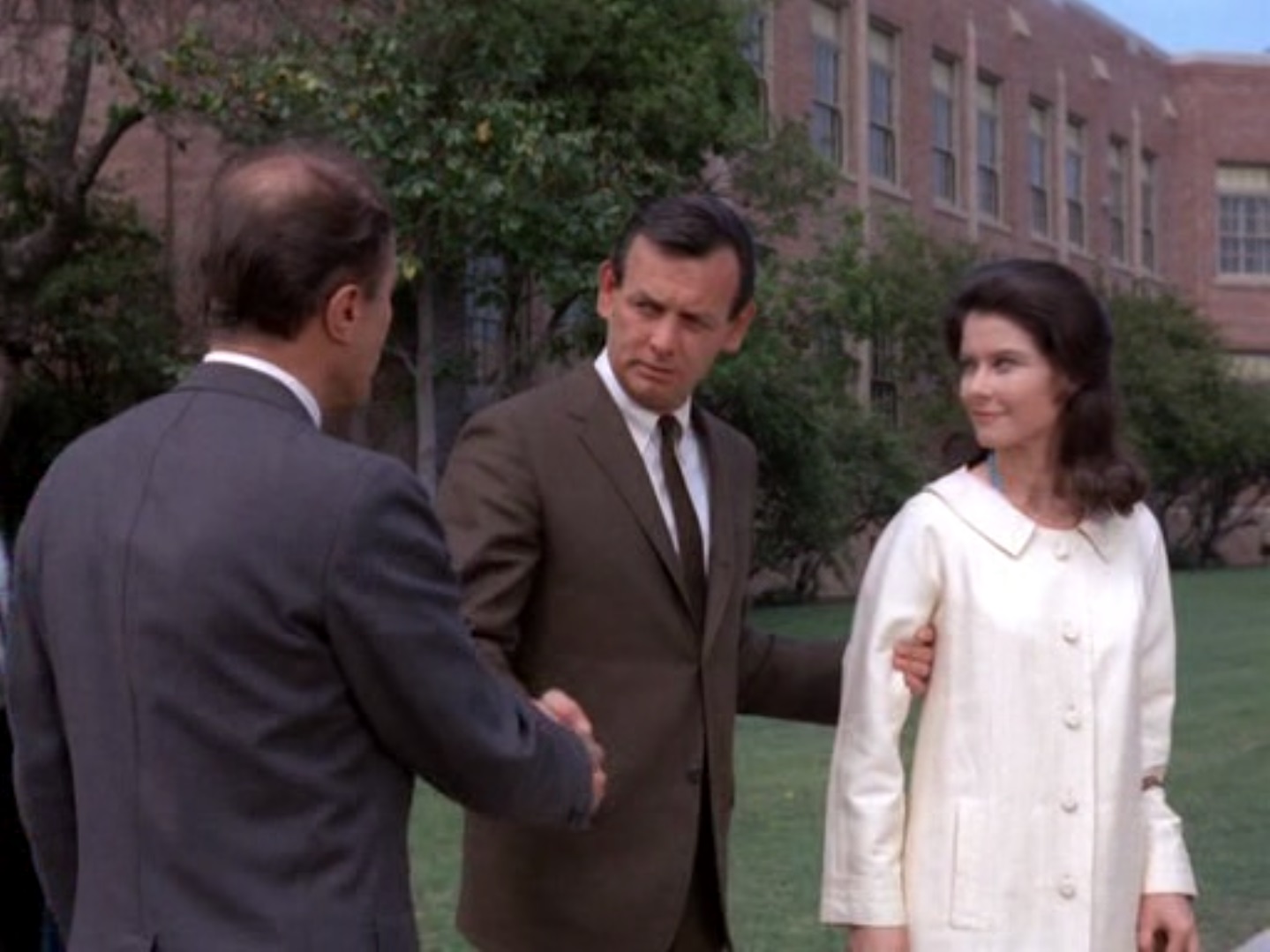
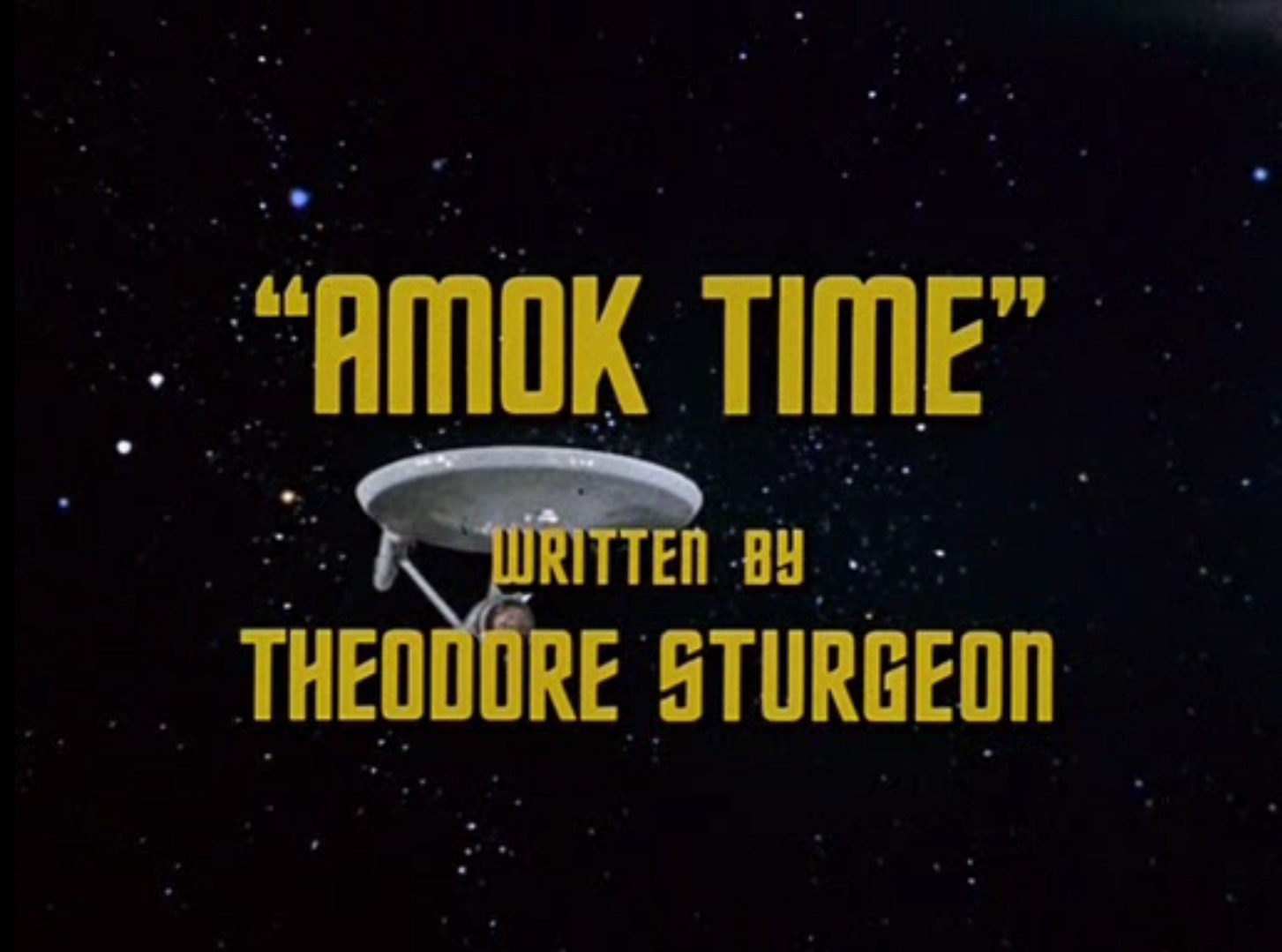

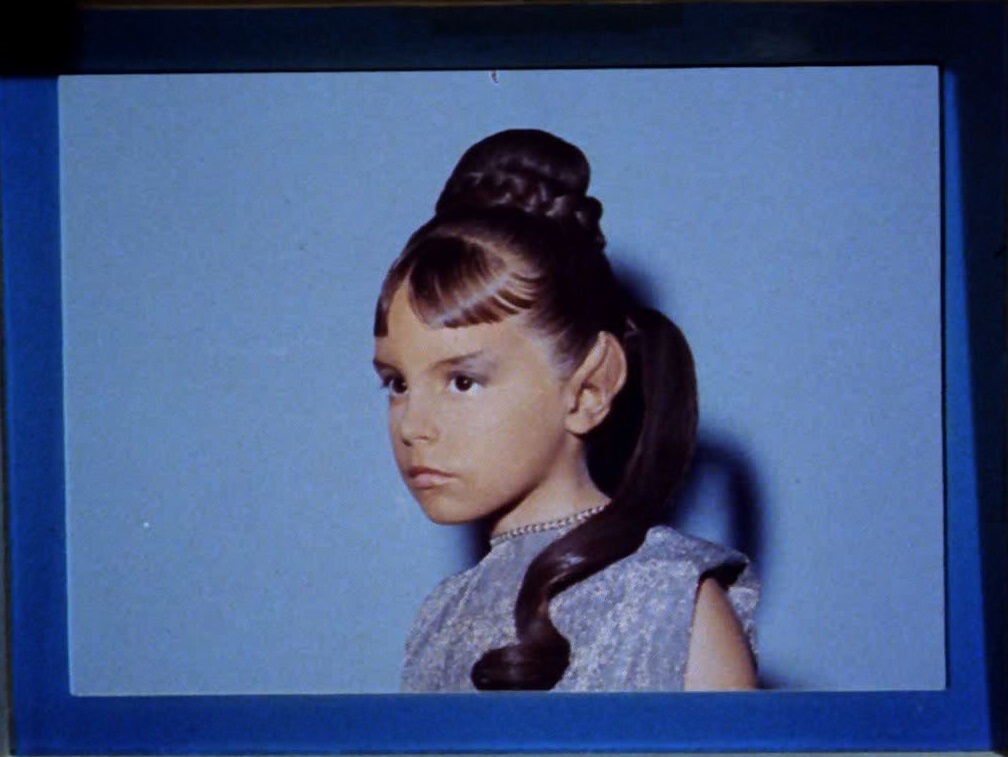
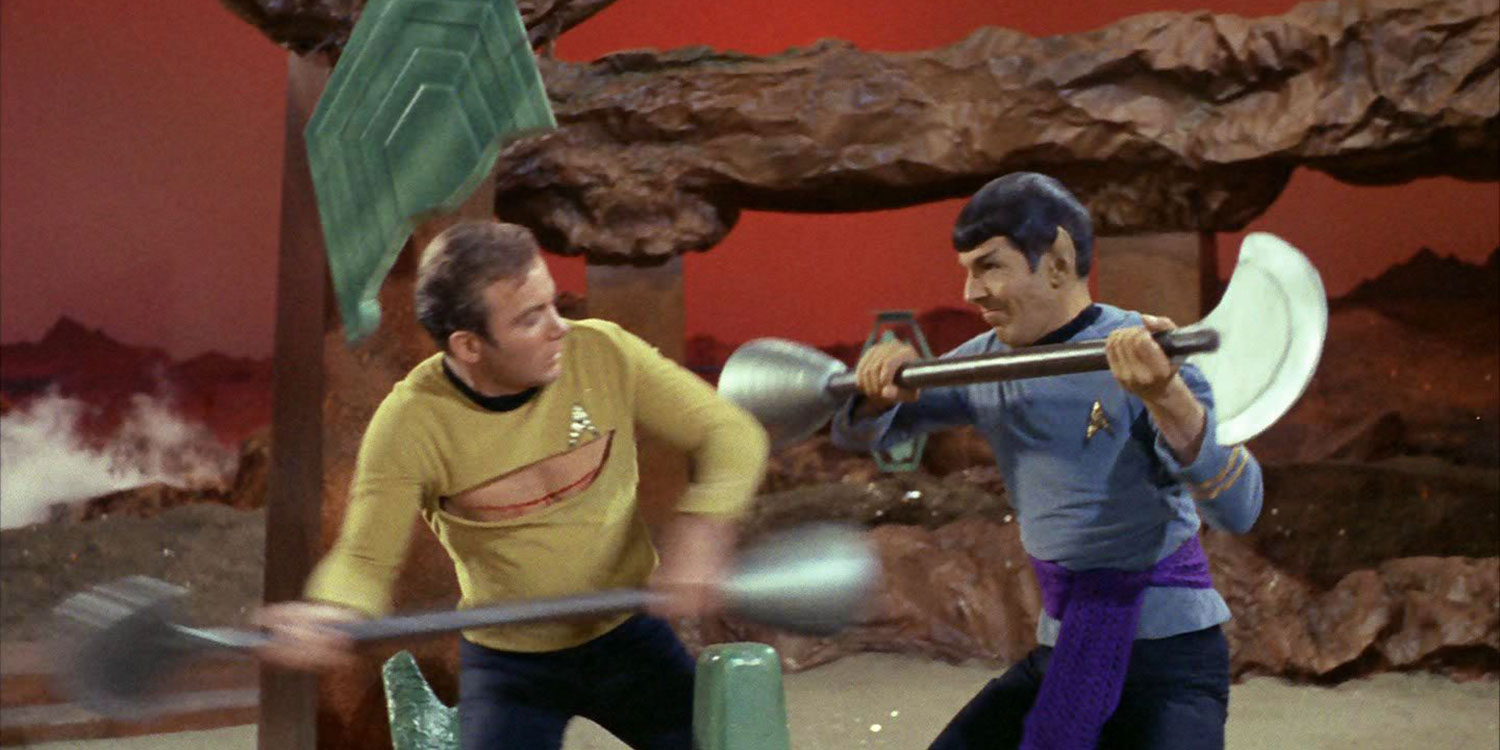
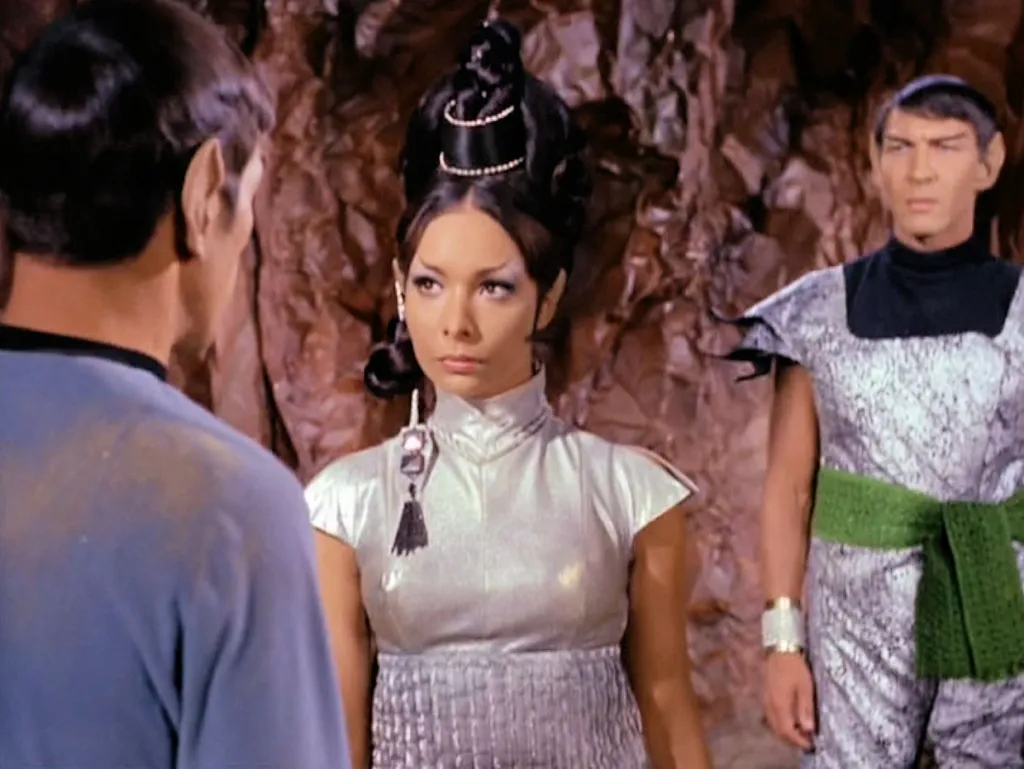
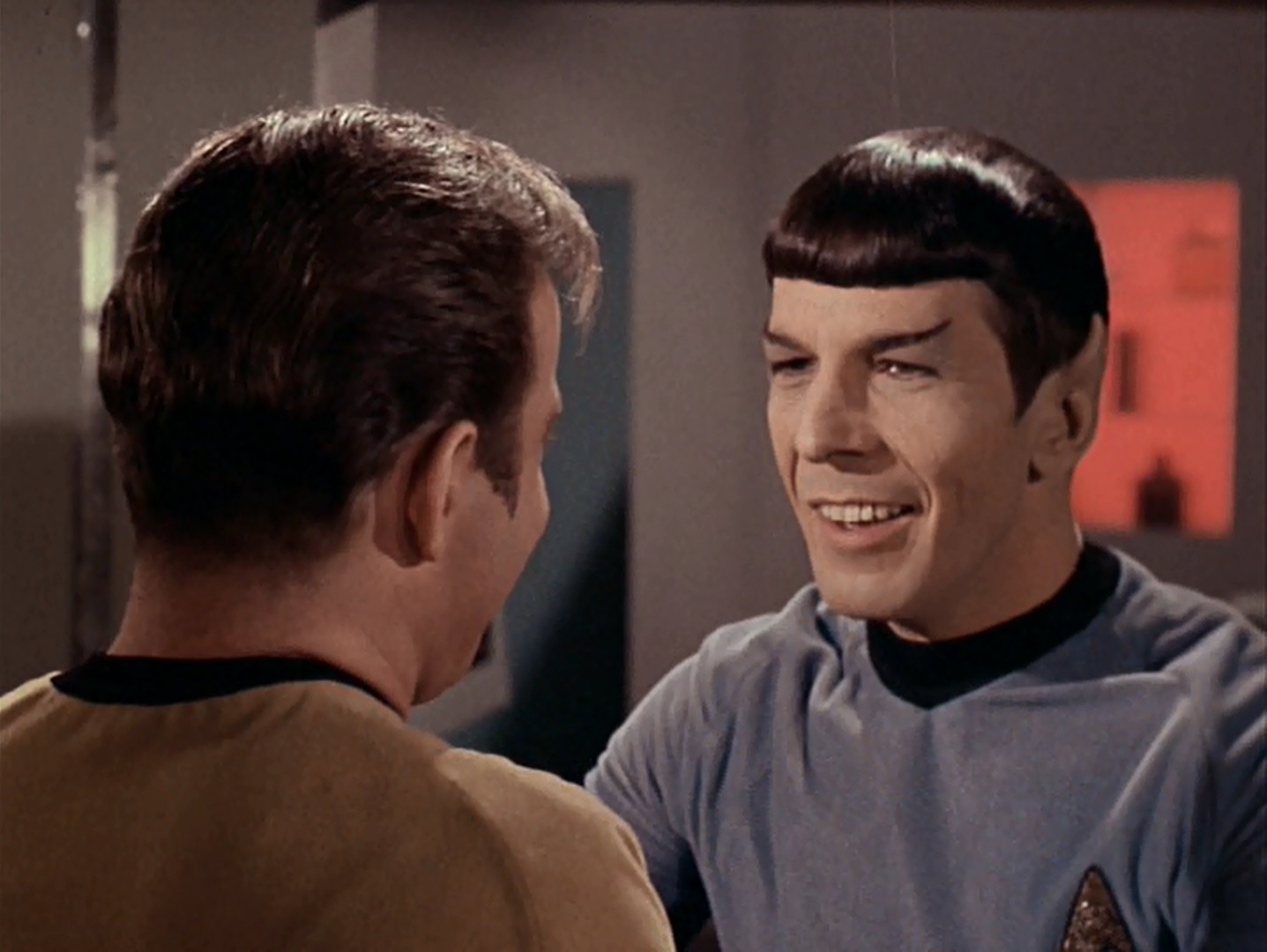


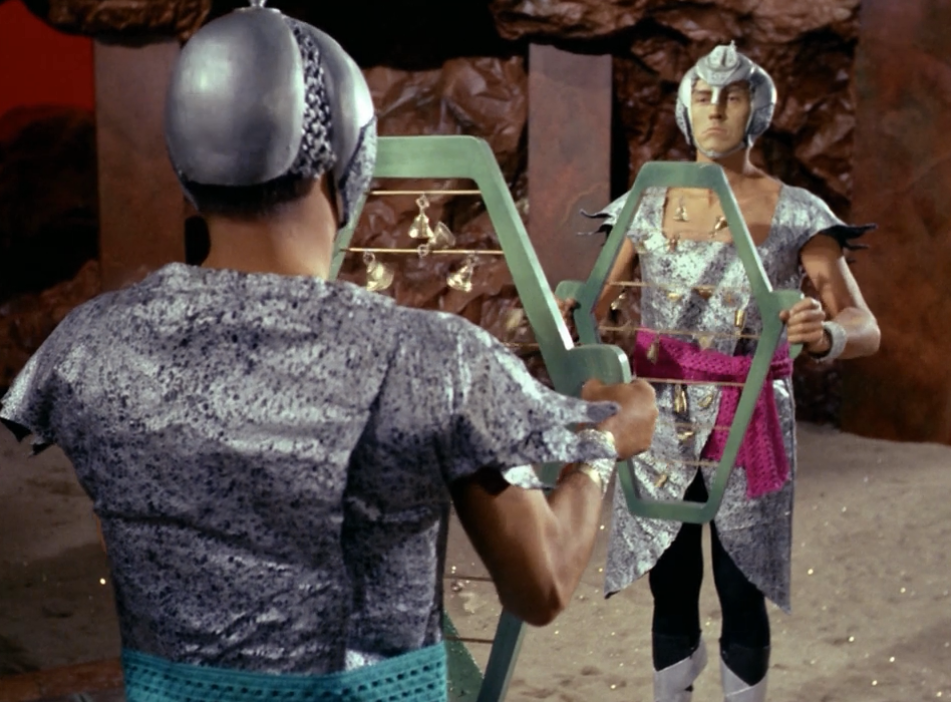
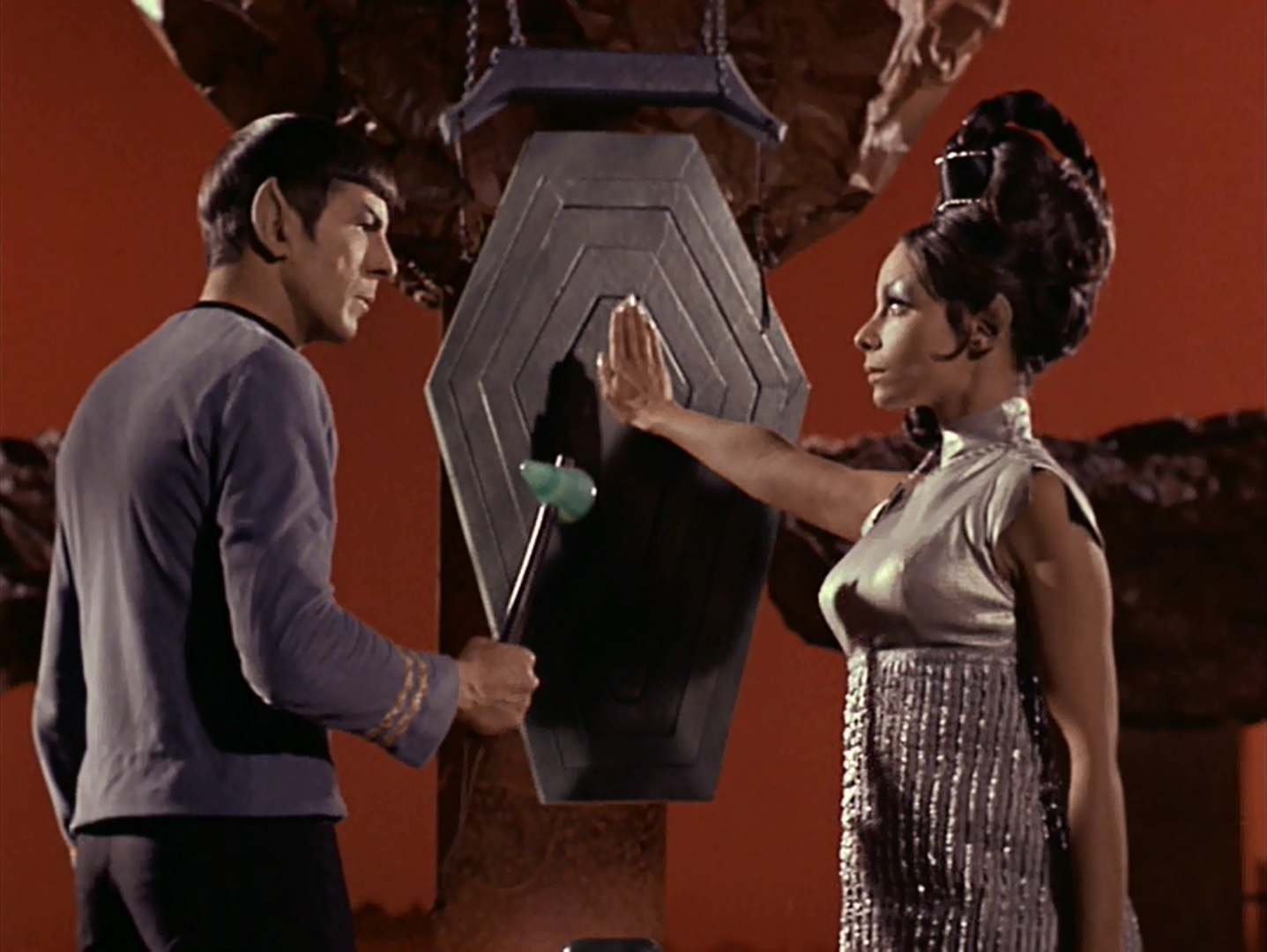

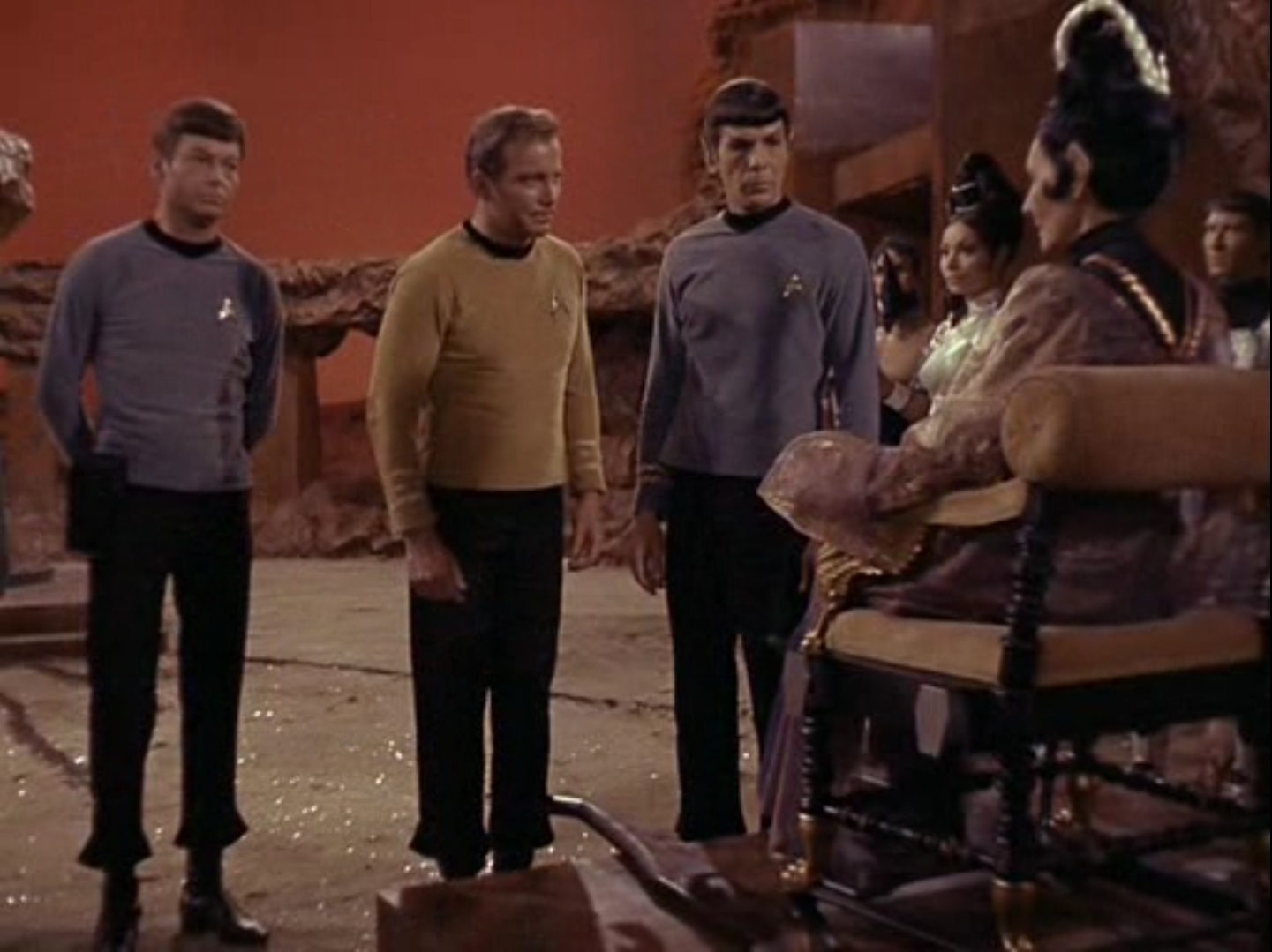


![[April 12, 1967] We'll take Manhattan (<i>Star Trek</i>: "The City on the Edge of Forever")](https://galacticjourney.org/wp-content/uploads/2022/04/670412title-672x372.jpg)

![[March 22, 1967] The Lurking Fear (<i>Star Trek</i>: "The Devil in the Dark")](https://galacticjourney.org/wp-content/uploads/2022/03/670322title-672x372.jpg)
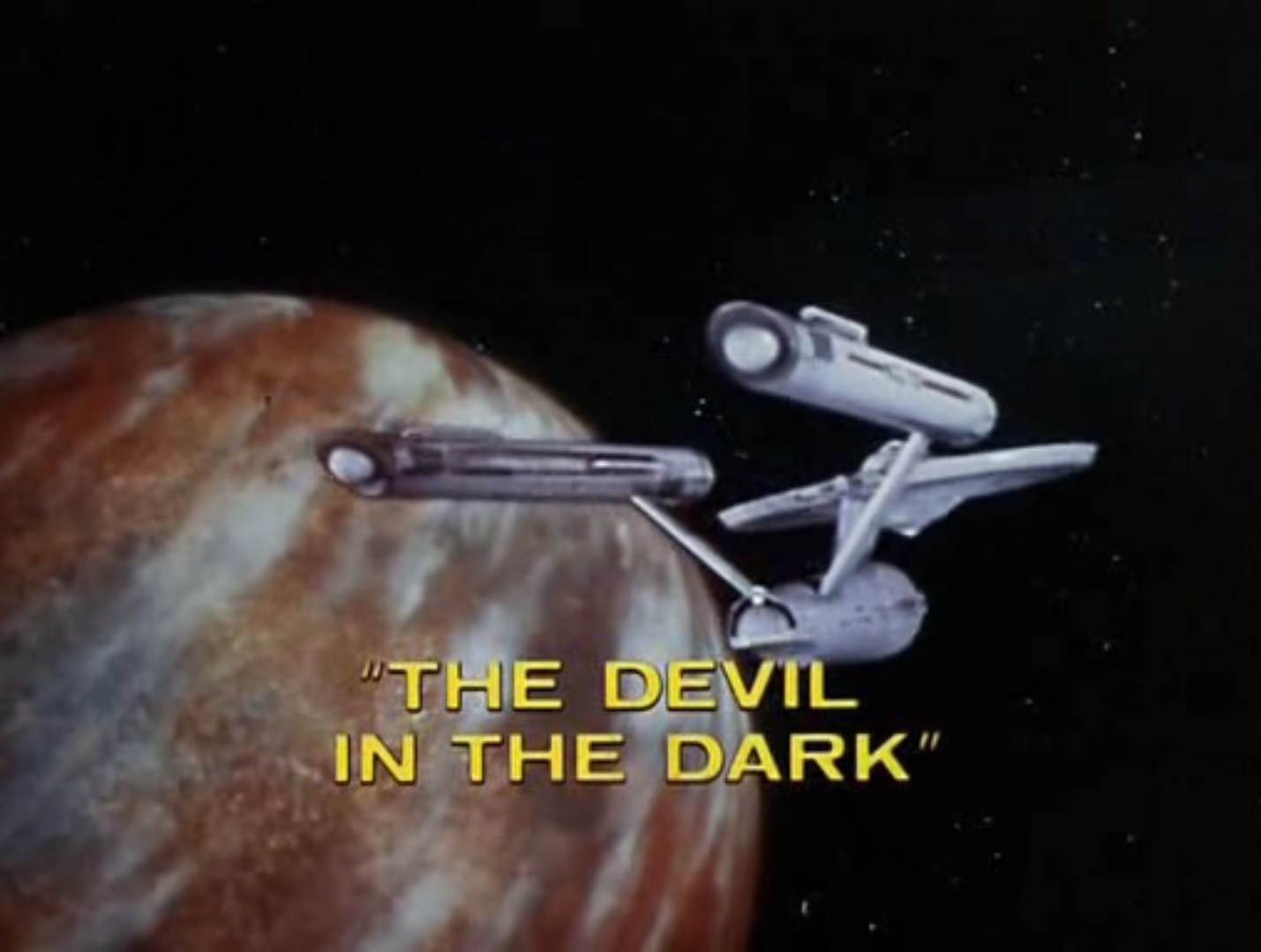













![[March 2, 1967] (<i>Star Trek</i>: "A Taste of Armageddon")](https://galacticjourney.org/wp-content/uploads/2022/02/670302title-672x372.jpg)







